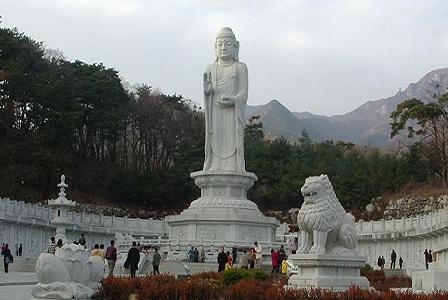





South
Korea had a male dominate class system where
females were considered home care providers. During the Yi Dynasty
which controlled
Korea until 1910 women were to follow the “three
ways of obedience, [which] were: follow the parents in youth, follow the
husband in marriage, follow the children in age” (Georgie D.M. Hyde,
1988, Pg 100). Since that time women having been gaining power and
searching for sex equality in South Korea. The movement started to gain
most of its momentum during the 1980’s. My interviewee left Korea in
the mid 1970’s the eldest of 7 siblings.
“three
ways of obedience, [which] were: follow the parents in youth, follow the
husband in marriage, follow the children in age” (Georgie D.M. Hyde,
1988, Pg 100). Since that time women having been gaining power and
searching for sex equality in South Korea. The movement started to gain
most of its momentum during the 1980’s. My interviewee left Korea in
the mid 1970’s the eldest of 7 siblings.
South Korea could not support free public schooling beyond the 6th grade level. Junior high, high school, and post secondary education all require tuition fees to be paid by the parents. There are scholarships available but Hyde states that they have a male sex bias (Pg. 104). Hyde also points out that competition between females for high school education/vocational school is fierce. Given my interviewee’s family’s circumstances affording high school wasn’t easy.
Since the removal of Japanese forces Korea has been divided geographically and politically. Since then, my grandfather, who was from North Korea had been permanently separated from his family in the North. Through my research I found out that during the 1980 the Korean Broadcasting System which was nationwide started broadcasting television reunions to bring separated families together. A few thousand families were reunited during that time (Pg. 169-171).
Hyde states, “After the Korean War, its [Korea] future was in the hands of the unholy alliance of the communist Soviet Union and the democratic USA, who split the country with no regard for the break-up of families which had already suffered a diaspora comparable to that experienced by the Jews. It also created a political apartheid between the north and the south.” (Pg. 273) This statement indicates that these two competing super powers were directly responsible for the suffering of the Korean people. Since then The United States has developed a strong relationship with South Korea allowing military personnel to inhabit the region for many years.
Author: Erin Million
Sources:
Hyde, Georgie D.M., (1988). South Korea Education, Culture and Economy. Great Britain: Camelot Press Ltd, Southhampton